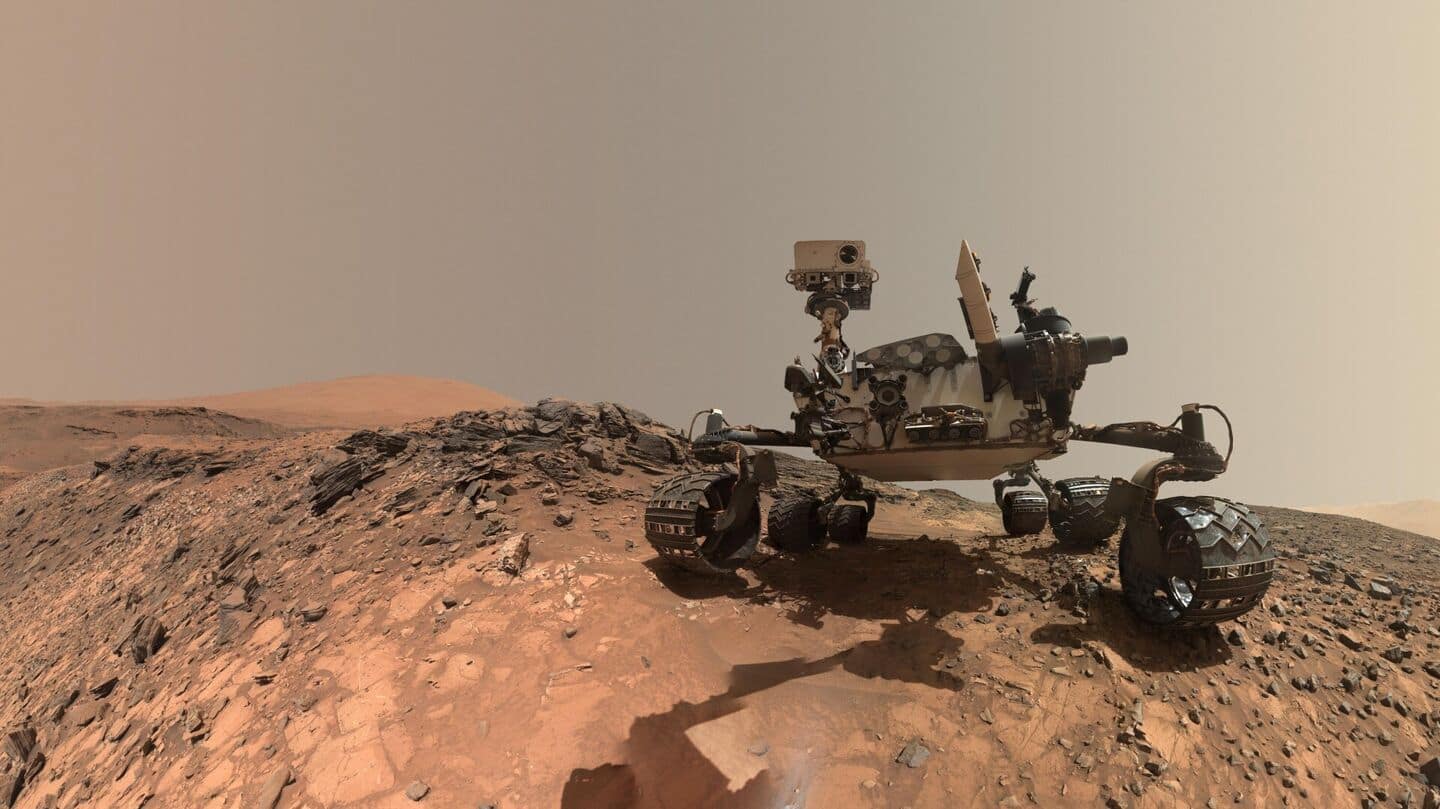
Is Mars habitable? NASA rover finds largest organic compounds
What's the story
NASA's Curiosity rover has made a groundbreaking discovery, revealing the largest organic compounds ever found on Mars. The team of scientists analyzing these compounds suggest prebiotic chemistry may have evolved further on the Red Planet than previously thought. The analysis identified three alkanes - decane, undecane, and dodecane - which are saturated hydrocarbons composed solely of carbon and hydrogen atoms with single bonds.
Organic chemistry
Alkanes: Key indicators of potential life on Mars
Alkanes, which are commonly found in petroleum and used as fuels and solvents, are thought to be remnants of fatty acids preserved in the Martian rock sample. Fatty acids are critical organic molecules that form the chemical building blocks of life on Earth. Although there's no way to confirm the source of these molecules, their discovery is a big deal as it raises the possibility that large organic molecules known as "biosignatures," could be preserved on Mars.
Discovery
Ancient lakebed yields evidence of organic molecules
The discovery was made by a sampling instrument on NASA's Curiosity rover, with an international team confirming the results in a lab here on Earth. Caroline Freissinet, the lead study author from the French National Centre for Scientific Research (CNRS), explained these fragile linear molecules have survived at Mars's surface 3.7 billion years after their formation. Meaning, if life ever appeared on Mars billions ago, chemical traces could still be present today for us to detect.
Exploration
Curiosity rover's exploration in Gale Crater
The Curiosity rover, which has been exploring Mars's Gale Crater since 2012, drilled the Cumberland sample from an area called "Yellowknife Bay" in May 2013. The region looked like an ancient lakebed, which is why scientists sent the rover there. "There is evidence that liquid water existed in Gale Crater for millions of years and probably much longer, which means there was enough time for life-forming chemistry to happen in these crater-lake environments on Mars," said scientist Daniel Glavin.
Possibilities
Scientists remain open to alternative explanations for organic molecules
The researchers performed a number of analytical experiments in the lab to show how Mars-like mineral conditions could produce carbon chains from other organic compounds. Freissinet clarified that these detected molecules are linear carbon chains, aka alkanes or hydrocarbons. While they could have formed from simpler molecules without any support from a living organism, the scientists are open to other explanations for the presence of these long organic molecules on Mars.